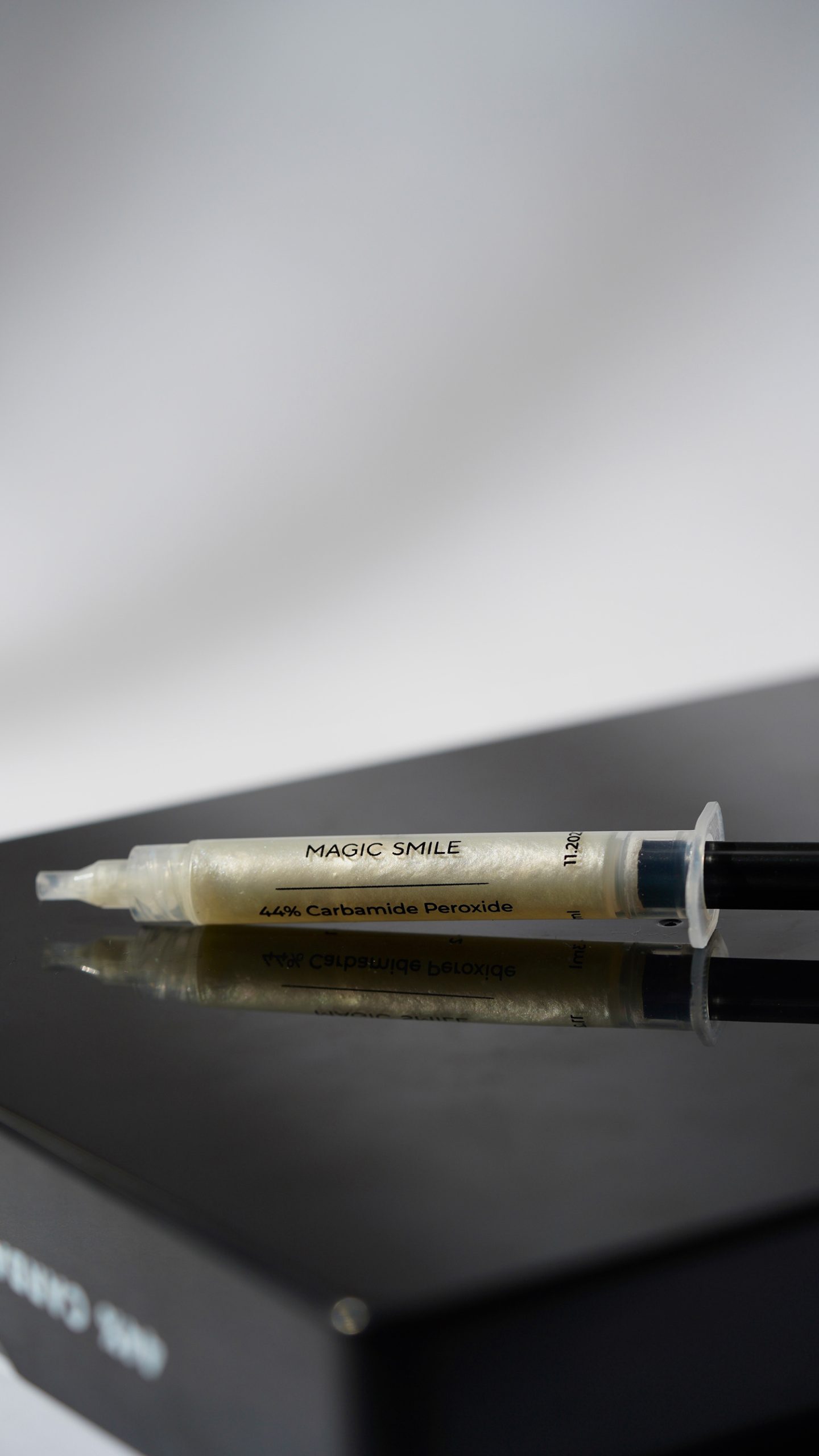What is teeth whitening?
What is teeth whitening?
MAGIC SMILE is a safe and sophisticated teeth whitening technology. Based on a patented gel containing Carbamide Peroxide 44%, Hydrogen Peroxide 25%, Hydrogen Peroxide 38%, MagicLight PRO LED lamps and MAGICSMILE HOME system. The gel and lamp are certified and approved by the State Sanitary Epidemiological Service of Ukraine. The technology was developed in the USA.
The key advantage of MAGIC SMILE is that we can choose the type of gel, whitening protocol, and provide a custom procedure based on the unique characteristics of the patient’s teeth. It is an integrated approach that gives the best result and makes the effect last for a long time.
The main principle of teeth whitening.
Teeth whitening with a light, also known as light teeth whitening, is one of the most popular techniques used in dentistry. The idea behind it is to use light to activate a whitening gel applied to the tooth surface. The technology works by activating the chemicals in the gel with light energy, helping to remove stains and brighten teeth.
